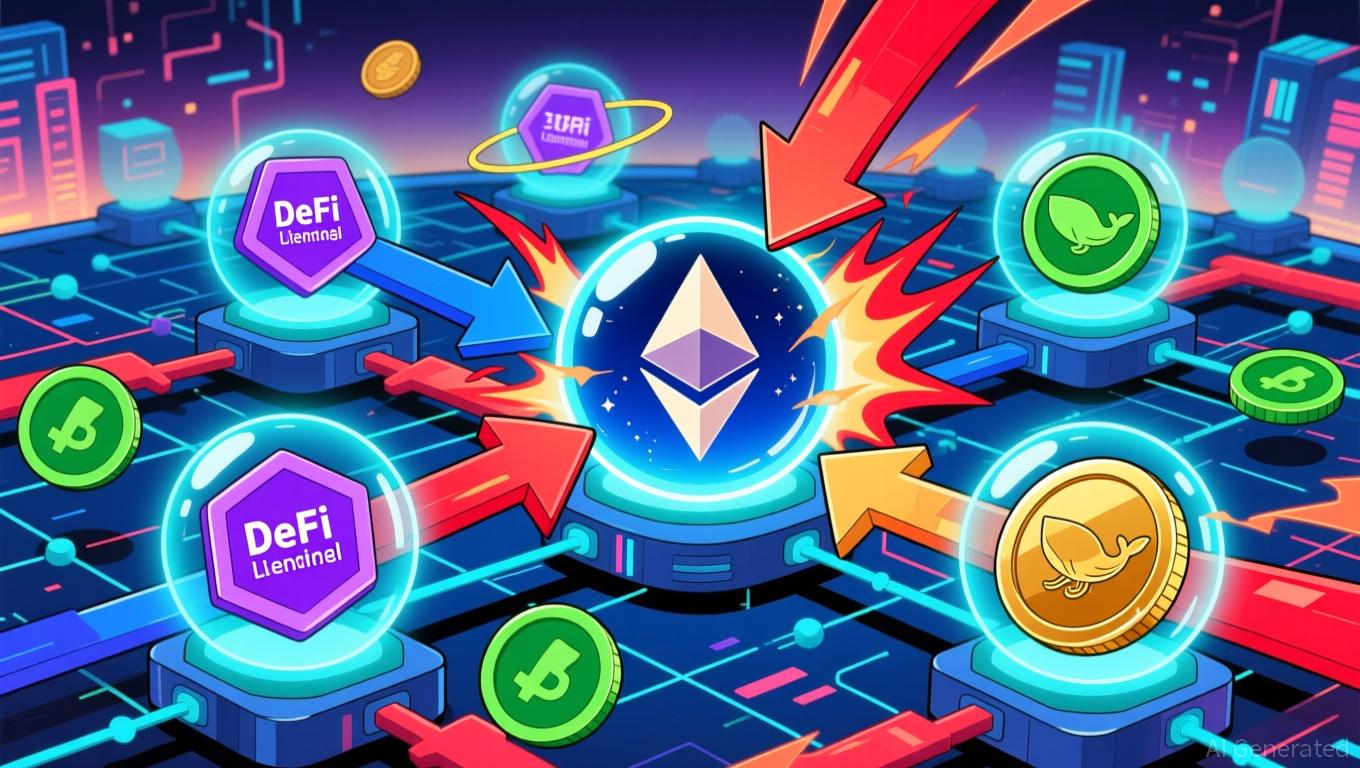JPMorgan and DBS Establish Interoperability Framework to Transform Worldwide Tokenized Financial Systems
- JPMorgan and DBS Bank partner to create a blockchain-based interoperability framework for tokenized deposits, aiming to revolutionize cross-border institutional payments and set digital finance standards. - The framework enables real-time 24/7 settlements across public and permissioned blockchains, allowing seamless exchange of tokenized deposits between institutions via JPMorgan's Kinexys and DBS's tokenization expertise. - By addressing ecosystem fragmentation and enhancing operational flexibility, the
JPMorgan and Singapore’s DBS Bank have unveiled a collaboration to create a blockchain-powered interoperability framework for tokenized deposits, aiming to transform institutional cross-border payments and establish a new benchmark for digital finance. Announced on November 11, the partnership utilizes JPMorgan’s Kinexys platform alongside DBS’s expertise in tokenization to facilitate instant, round-the-clock settlements across both public and private blockchains, addressing fragmentation within the tokenized asset landscape, as outlined in
This framework will enable institutional customers to transfer and redeem tokenized deposits effortlessly between the two banks’ blockchain environments.

Rachel Chew, DBS’s Group Chief Operating Officer and Head of Digital Currencies, stressed the strategic value of the project: “With instant, 24/7 payments, businesses gain the flexibility, speed, and options needed to manage global risks and capitalize on new opportunities,” as reported by
This initiative builds upon JPMorgan’s earlier efforts, such as a June 2025 proof-of-concept for JPMD tokens on BaseScan, an
This partnership reflects the rising institutional interest in tokenized finance. A 2024 survey by the Bank for International Settlements revealed that almost a third of commercial banks are investigating tokenized deposits, signaling rapid changes in the industry. By building a cross-issuer, cross-network system, JPMorgan and DBS seek to boost scalability and accessibility, potentially accelerating the global adoption of tokenized assets, as discussed in
This project also follows JPMorgan’s collaboration with MIT’s Digital Currency Initiative, which produced a payment token prototype on an EVM-compatible blockchain to test administrative controls and transaction functions, as described in
As tokenized finance continues to evolve, frameworks like this could transform cross-border payments, delivering quicker and more cost-effective alternatives to conventional systems. With instant settlements and greater institutional participation, the JPMorgan and DBS alliance marks a significant move toward a more unified digital financial ecosystem.
Disclaimer: The content of this article solely reflects the author's opinion and does not represent the platform in any capacity. This article is not intended to serve as a reference for making investment decisions.
You may also like
Ethereum News Update: Institutions Eye Ethereum—Balancing Legal Challenges and Major Investor Accumulation
- Ethereum nears $3,400 amid rising institutional interest and whale accumulation, signaling potential rebound toward $4,000. - DeFi projects like Ethena and utility tokens RTX gain traction, highlighting Ethereum's role in capital-efficient infrastructure. - Legal uncertainties persist after MEV fraud trial ends in mistrial, exposing tensions between blockchain rules and traditional law. - Whale activity shows $1.37B ETH accumulation in November, contrasting with Bitcoin's weaker institutional demand. - A

U.S. Cryptocurrency Oversight Faces Uncertainty as Lawmakers Divide Authority Between SEC and CFTC
- SEC accelerates crypto regulation clarity, balancing innovation with investor protection via streamlined exemptions and jurisdiction boundaries. - Senate bill proposes dual oversight: CFTC regulates digital commodities (Bitcoin/Ether), SEC retains control over investment contracts. - Tax reforms enable crypto ETFs to stake assets, resolving legal uncertainties and boosting institutional adoption through staking rewards. - Bipartisan efforts aim to create cohesive U.S. crypto framework, though challenges
Bitcoin News Today: Square’s No-Fee Bitcoin Initiative Prompts Payments Sector to Reevaluate
- Square introduces zero-fee Bitcoin payments for merchants until 2027, challenging traditional credit card networks. - The initiative enables fiat-to-Bitcoin conversions and cross-border transactions, positioning Bitcoin as a functional currency. - Industry observers highlight cost savings for small businesses, with Bitcoin fees undercutting 1%-4% credit card rates, while competitors like Visa face regulatory pressures.

Systems Thinking in Supply Chains Influences Today's Leaders, Says Ford's Farley
- Ford CEO Jim Farley argues supply chain mastery is vital for leadership, citing Apple's Tim Cook and GM's Mary Barra as exemplars. - Supply chain disruptions highlighted by First Solar's earnings drop and Kimberly-Clark's $48.7B Kenvue acquisition challenges underscore its strategic importance. - China's resumption of Nexperia chip shipments reveals semiconductor supply chain fragility amid geopolitical tensions. - Farley criticizes traditional four-year degrees for entry-level roles, advocating technica